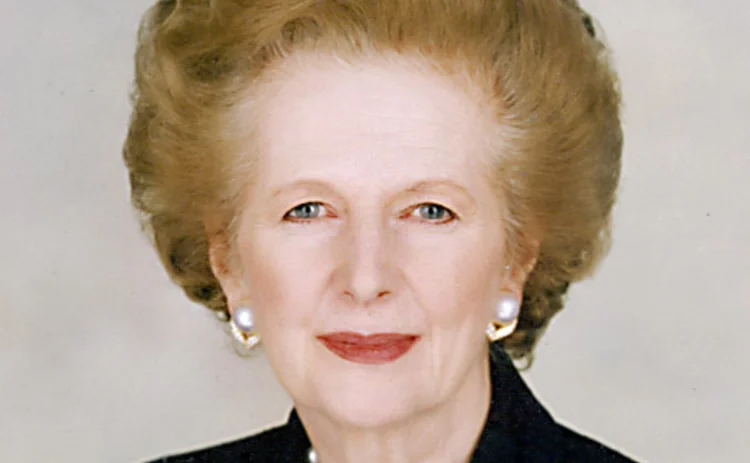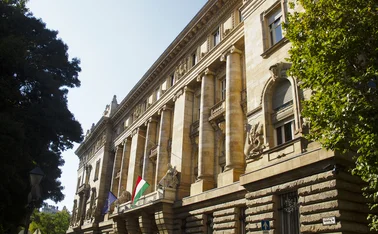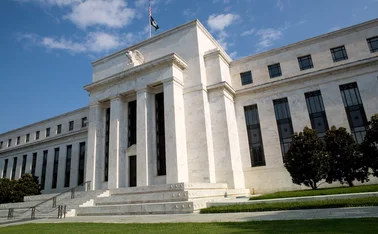
Thatcher's stance on the ECB deserves re-appraisal

Margaret Thatcher, the former British prime minister who died aged 87 yesterday, generated controversy in most areas of political life that she touched.
Her stance towards European monetary union and the European Central Bank (ECB) was no exception – and played a key role in her undoing in the end. But now, 23 years on, her views at that time look closer to the mainstream than ever.
One of the highlights of Thatcher's final appearance in the House of Commons before she stood down as prime minister came when she was asked if she would "continue her own personal fight against a [European] single currency and an independent central bank when she leaves office?"
Before she could answer, a political arch-enemy of hers, the radical left-winger Dennis Skinner, interjected to suggest her next move would be to become the inaugural governor of the then putative European Central Bank (ECB), the very existence of which she was so fiercely opposing. The House erupted in laughter. When it died down, Thatcher said: "What a good idea! I hadn't thought of it!"
The House then erupted in cheers. Buoyed by the moment, Thatcher continued: "But if I were, there'd be no European Central Bank accountable to no one, least of all to national parliaments. Because the point of that kind of European Central Bank is no democracy; taking powers away from every single parliament and being able to have a single currency and a monetary policy and an interest rate, which takes all political power away from us."
The Conservative prime minister made these comments seven years before the Bank of England (BoE) was made independent in one of the first acts of the Labour government of Tony Blair and Gordon Brown, when it came to power in 1997. The idea of an independent BoE had reportedly been put to Thatcher, only to be rejected in favour of retaining control over monetary policy in the hands of the elected government of the day.
But an independent ECB was something far more menacing, in her eyes. That day in the House of Commons, she went on to say that "a single currency is about the politics of Europe; it is about a Federal Europe by the back door".
‘Monetary policy is undemocratic'
The main proponent of de jure and de facto independence for the ECB was the Deutsche Bundesbank. It is still a die-hard supporter of such a monetary policy approach. In a recent publication by the German central bank, filed on its website under ‘background information', says unabashedly that "monetary policy is undemocratic". "What seems like a questionable privilege of central banks, however, is actually the prerequisite for predictable monetary policy and stable prices," it says.
But there is evidence now that the ECB itself is becoming disquieted by its own detachment from scrutiny by the electorate in Europe, especially as its remit moves away from core monetary policy as it gains banking supervisory powers in Europe.
At a talk at the London School of Economics (LSE) in February this year, Simon Hix, a professor of European and comparative politics at the LSE, said the eurozone central bank had recently asked him to "tell us how we can be legitimate when we, in a banking union, withdraw a banking licence to a national bank because they don't have sufficient liquidity".
Hix said the ECB is considering opening itself up to be called before national parliaments – instead of the current situation where it is held to account only by the Economic and Monetary Affairs Committee (Econ) of the European Parliament (EP).
Even before the eurozone crisis started, the ECB was among the most powerful and least accountable of the world's central banks, and as the crisis has played out it has become even more powerful – but with no clear proportionate increase in accountability. This, say some commentators, is becoming a real issue - with the Econ committee being described as "genuflecting" to the president of the ECB when he deigns to report on ECB policy.
The European Parliament is generally held to be becoming more muscular – and the Econ committee is making an effort to hold ECB president Mario Draghi to account, under the leadership of another redoubtable woman of British politics, Sharon Bowles. But Bowles herself said last week on Twitter: "...can anyone do anything if the ECB doesn't do its job[?] – no".
The decade or two after Thatcher left office in 1990 saw the trend for de jure central bank independence sweep much of the developed world, with few serious challenges to that new orthodoxy. As the global financial crisis has taken root, however, and the conduct of central banks has come to the fore as critical in helping or hindering the route to recovery, Thatcher's comments about democratic responsibility have gathered a new resonance.
Only users who have a paid subscription or are part of a corporate subscription are able to print or copy content.
To access these options, along with all other subscription benefits, please contact info@centralbanking.com or view our subscription options here: http://subscriptions.centralbanking.com/subscribe
You are currently unable to print this content. Please contact info@centralbanking.com to find out more.
You are currently unable to copy this content. Please contact info@centralbanking.com to find out more.
Copyright Infopro Digital Limited. All rights reserved.
As outlined in our terms and conditions, https://www.infopro-digital.com/terms-and-conditions/subscriptions/ (point 2.4), printing is limited to a single copy.
If you would like to purchase additional rights please email info@centralbanking.com
Copyright Infopro Digital Limited. All rights reserved.
You may share this content using our article tools. As outlined in our terms and conditions, https://www.infopro-digital.com/terms-and-conditions/subscriptions/ (clause 2.4), an Authorised User may only make one copy of the materials for their own personal use. You must also comply with the restrictions in clause 2.5.
If you would like to purchase additional rights please email info@centralbanking.com







